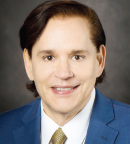
Henry Kuerer, MD, PhD, FACS
Henry Kuerer, MD, PhD, FACS, a cancer surgeon and researcher at The University of Texas MD Anderson Cancer Center, told The ASCO Post that although this study is not practice-changing, it does offer a potential option for patients.
“The advantage of this technique is that the procedure takes just 20 to 40 minutes, and the patient goes on to follow-up with or without radiation or endocrine therapy,” said Dr. Kuerer, who noted the median age of patients was 75 years. “This might be an appealing option for older patients with very small tumors; they can freeze the tumor and not have to worry about margins or undergoing another surgery.”
For this to become a standard procedure, however, Dr. Kuerer emphasized that larger prospective studies involving both hospital and office settings with 5- to 10-year follow-up are needed.
DISCLOSURE: Dr. Kuerer has served in a leadership role as Chair of the American Society of Breast Surgeons Publications Committee and a member of ASCO’s Scientific Program Committee; has received honoraria from Genomic Health; has served as a consultant or advisor to Genomic Health International and Targeted Medical Education; has participated in a speakers bureau for PER; and holds intellectual property in McGraw-Hill Publishing and NEJM Group.

